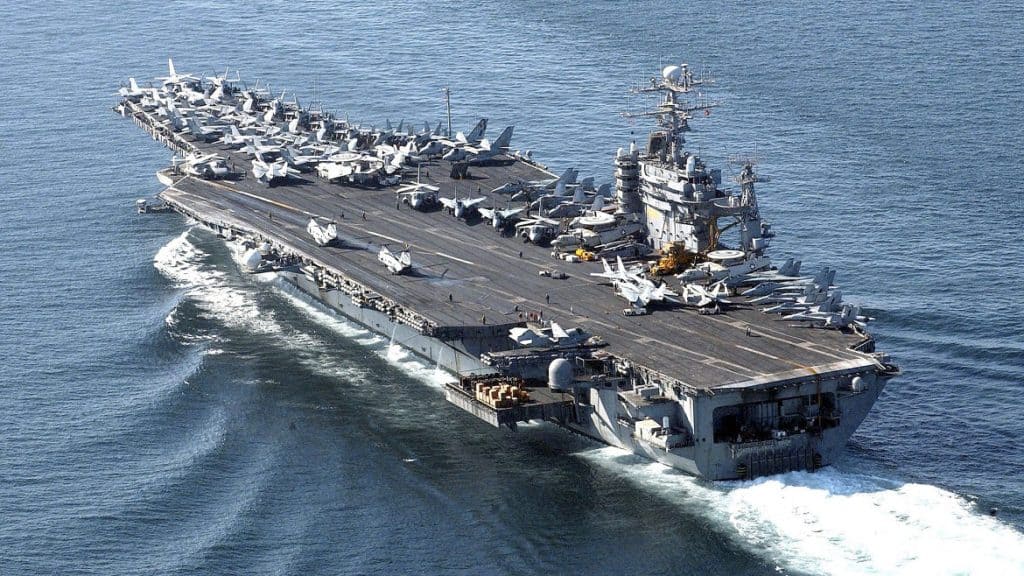By Dr Khushnam P N
The news of the exchange of prisoners between Iran and the United States as a humanitarian gesture under the pandemic is certainly a welcome move. But given the history of enmity between the two, the question must bring a deeper underground current.

The news of the exchange of prisoners between Iran and the United States as a humanitarian gesture under the pandemic is certainly a welcome move. But given the history of enmity between the two, the question must bring a deeper underground current.
How much is related to the U.S. decision to remove four Patriot surface-to-air missile batteries, anti-missile systems and other military goods from Saudi soil along with dozens of military personnel to be reassigned? Is it part of the large US withdrawal plan from the region? Is it a possible relaxation of the tension and the warm gesture of the United States and the gradual revival of its lost pillar? Is the United States in a hurry with its weakened economy, easing its grip on provocative Iran, diminishing the region’s oil interests or shifting its presence to the Indo-Pacific sector? A brief overview and summary analysis of the immediate antecedent will provide a perceptible context for understanding its implications for Gulf security.
The policy of “Maximum pressure” continues with the maximum warlike exchange of accusations and their counters. The request of the Iranian Central Bank to the IMF for the loan of 5 billion to fight the pandemic and to help support the sanctioned economy of the country was not given due to US pressure. The United States said that humanitarian items such as medical supplies, pharmaceuticals and food are not part of the sanctions and Iran replied that U.S. sanctions have devastated the Iranian economy and prevent access to its frozen money in banks. abroad. The killing of Qasem Soimani, decorated commander of the IRGC, Quds’ strength in January and the Iranian attack on US bases in Iraq had pushed the two countries almost into a hot war.
The United States is removing Patriot batteries that were deployed last year after Houthi’s attacks on Saudi oil facilities with alleged Iranian support. In addition, two American fighter squadrons have already been removed from the region. The presence of the US Navy is also about to be reduced. These moves are said to be based on the United States’ assessment that crippling sanctions and the pandemic attack made Iran too weak to be a threat to the United States and its interests in the region.
The 75-year US-Saudi Arabia strategic alliance has received many major shocks in recent months. The oil price war of Saudi Arabia and Russia has brought the interests of old strategic partners to an unprecedented state of loggers. There have been reports of opposition to the Saudi position of flooding the oil market which has affected the growing US oil companies. These rumors had long been communicated through various channels in Saudi Arabia that the Kingdom’s action was destroying US interests and oil industries. The economic impact of the pandemic in their economies has drastically reduced their economic tolerance and political sustainability.
The longstanding military commitment of the United States to Afghanistan and Iraq without a desired result in sight has an extremely tiring experience and looking for an early way out. These endless campaigns are becoming too onerous to support domestic politics with growing criticism and public scrutiny. The downsizing of the United States is therefore part of this broad strategy. The pandemic impact on the U.S. economy would surely have an impact on its military might which will certainly diminish its political will sooner or later.
The pattern appears to be similar to the 1968 Nixon campaign, in the midst of the Vietnam War, based on the promise of “peace with honor” in Vietnam. The following “Nixon Doctrine” which stated that the United States would support allies facing military threats with economic and military aid rather than field troops.
American politics in Western Asia was therefore based on its “two-pillar” policy with Iran and Saudi Arabia, which collapsed with the Islamic revolution of Iran in 1979. The strategic thinking of the United States must be subjected to an introspective criticism of Iran’s survival for forty years despite its sanctions. The constant challenge to Iran even in the face of “Maximum pressure” marks it as a moment in the United States of Vietnam in the Gulf and in wider Western Asia in an election year. The new pillars have yet to be determined and assigned responsibilities.
There was a growing divergence of approach among GCC members on security in the Gulf and their policy towards Iran. Qatar, Kuwait and Oman have been pragmatic in their policy towards Iran based on the spirit of a prudent neighborhood approach. Since the GCC’s Qatar crisis in 2017, when Saudi Arabia involved non-Gulf Egypt against the blockade of Qatar marks a watershed in the unity of the GCC and its core objectives. Saudi Arabia suffers from a constant loss of leadership in the GCC. The pandemic has brought a semblance of unity of efforts and mechanisms, but it remains a house in disarray regarding its approach to Iran and Gulf security.
The closest GCC states in Saudi Arabia, the United Arab Emirates, have taken an unprecedented step in sending medical supplies and items related to the worst pandemic hit by Iran as a humanitarian gesture. This is a marked change in the policy of the GCC member of the Iranian ant who has a longstanding dispute over the islands of Abu Musa and Tunbs in the Gulf.
What are the options of Saudi Arabia in this scenario and development model? The decision certainly pushed the kingdom into a strategic dilemma. He needs rapid introspection and evaluation of possible options to follow the course in accordance with his national interests and the security of the Gulf, which is an integral factor of his national security. The gradual abatement of belligerence towards Iran and the achievement of the 1998 gesture, OIC moment of mutual acceptance of existence even with political differences, can be fundamental to reduce the hostile flames of rivalry.
For the United States, it is, most likely, a reflection of the strategic shift of the geopolitical focus towards the Indo-Pacific. This disadvantage in the region will provide the United States with a greater ability to engage in this new arena of competition, with the new wave of China, a strategic competitor named in the United States “National Security Strategy” 2017. A comparative examination clarifies that addressing the China and its expanding tentacles are far more important than that of Iran. Iran is simply a regional destructive factor while the Chinese wave is the real threat to the global power of the United States both in terms of economic power and military challenge.
Notwithstanding, the security of the Gulf will remain a priority for the US and its allies due to the geo-economic and strategic importance. As the US made reference to Turkey’s role in Syria in the wake of its withdrawal from the country, it is looking for like-minded capable countries or strategic partners to take care of Afghan security and stability after US withdrawal from the country. The Gulf, however, is a different regional complex with countries having divergent political system, history of conflicts and conflicting national aspirations.
The regional states have complex network of relations with external powers with interests in the region. The US drawdown requires a pragmatic course aimed to develop a collective ‘Multilateral Security’ structure comprised of major powers- US, Russia, EU, China and India along with countries of the region. India can use the multilateral structure with its huge soft power in the region as credible partner and benign emerging power with non-hegemonic and democratic credentials to pursue its search for power in the emerging world order.
Author: Dr Khushnam P N Independent IR and Regional Security Researcher and Analyst (Theories of IR & Regional Security, Politics and Security in West Asia, Indian Foreign Policy, Iran-Israel & US, Indo-Pacific, Geopolitics and Multilateralism). Specialization: Iran, US & Gulf Security. Bangalore, India.
(The opinions expressed in this article are solely those of the author and do not necessarily reflect the views of World Geostrategic Insights)







